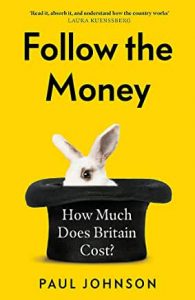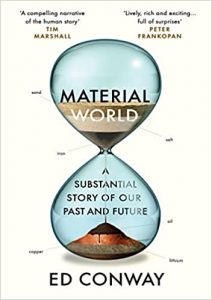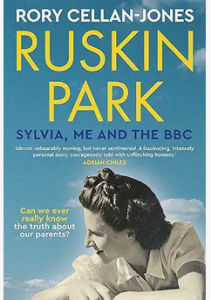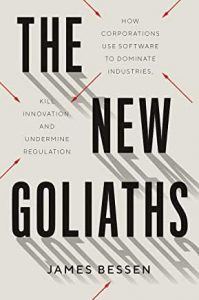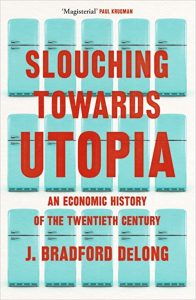Drumroll – it’s time to announce the winner of this year’s prize, from the long shortlist.
It’s been a difficult choice, as so often. Indeed, I’m going to have a runner-up as well this time. A reminder that this is entirely my personal decision, reflecting a book’s combination of insights, facts or ideas that were new to me and compelling writing to make it an enjoyable read. There is nothing systematic about the longlist, which just depends on what I read during the previous 12 months. And the Prize is that I offer to buy the winner (and the runner up) lunch if we happen to be in the same place.
So this year’s winner is Ed Conway’s Material World, a fantastic voyage of discovery around the world exploring the critical materials on which modern life, and the modern economy, depend. Some of these are familiar, like lithium, others far less so – such as the specific sand or salt needed for critical manufacturing processes. A quarter century ago I published a book called the Weightless World which observed, correctly, that economic value was increasingly intangible. There has been progressively less material stuff per £ of GDP since at least the 1970s. But the material to which all that intangible value is tethered is essential. This is a terrific read.
The runner up, as we head into a UK election period, is Paul Johnson’s Follow the Money. It didn’t quite make top slot because the content – UK policy and politics – is so much more familiar to me. But it deserves a prize for clarity of writing and the white-hot burning anger about the seemingly ever-worsening leadership and economic management people in this country have been suffering. Essential preparatory reading for the next 12 months in the UK.
Ed, Paul – I’m at your disposal for the prize lunch!

